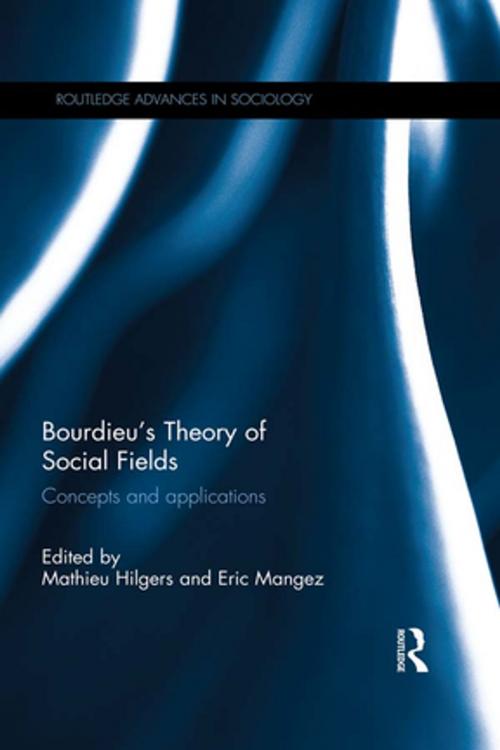Bourdieu's Theory of Social Fields
Concepts and Applications
Nonfiction, Social & Cultural Studies, Social Science, Sociology| Author: | ISBN: | 9781317678588 | |
| Publisher: | Taylor and Francis | Publication: | November 13, 2014 |
| Imprint: | Routledge | Language: | English |
| Author: | |
| ISBN: | 9781317678588 |
| Publisher: | Taylor and Francis |
| Publication: | November 13, 2014 |
| Imprint: | Routledge |
| Language: | English |
Bourdieu’s theory of social fields is one of his key contributions to social sciences and humanities. However, it has never been subjected to genuine critical examination. This book fills that gap and offers a clear and wide-ranging introduction to the theory. It includes a critical discussion of its methodology and relevance in different subject areas in the social sciences and humanities.
Part I "theoretical investigations" offers a theoretical account of the theory, while also identifying some of its limitations and discussing several strategies to overcome them. Part II "Education, culture and organization" presents the theory at work and highlights its advantages and disadvantages. The focus in Part III devoted to "The State" is on the formation and evolution of the State and public policy in different contexts. The chapters show the usefulness of field theory in describing, explaining and understanding the functioning of the State at different stages in its historical trajectory including its recent redefinition with the advent of the neoliberal age. A last chapter outlines a postcolonial use of the theory of fields.
Bourdieu’s theory of social fields is one of his key contributions to social sciences and humanities. However, it has never been subjected to genuine critical examination. This book fills that gap and offers a clear and wide-ranging introduction to the theory. It includes a critical discussion of its methodology and relevance in different subject areas in the social sciences and humanities.
Part I "theoretical investigations" offers a theoretical account of the theory, while also identifying some of its limitations and discussing several strategies to overcome them. Part II "Education, culture and organization" presents the theory at work and highlights its advantages and disadvantages. The focus in Part III devoted to "The State" is on the formation and evolution of the State and public policy in different contexts. The chapters show the usefulness of field theory in describing, explaining and understanding the functioning of the State at different stages in its historical trajectory including its recent redefinition with the advent of the neoliberal age. A last chapter outlines a postcolonial use of the theory of fields.















